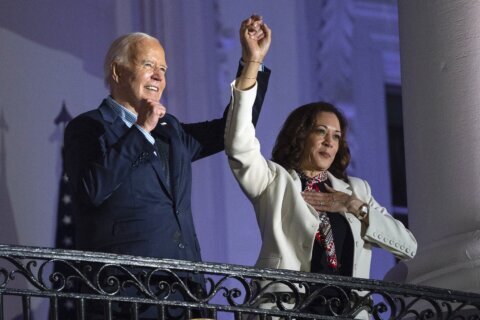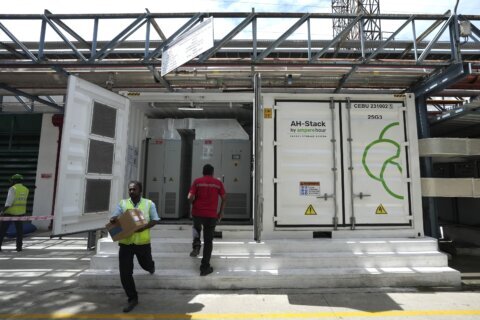A functioning air conditioning system at home is a must-have for many people across the U.S. Even if summers are relatively short, the relief of a cool home can make the hottest days less of a hardship.
But the cost to get your central air conditioning up and running may make your stress levels rise. HomeAdvisor reports the national average cost to install central air conditioning is $5,860, but the typical cost varies widely by location. Here’s the average cost of central air installation in 12 different U.S. cities, according to HomeAdvisor:
— Detroit: $3,585
— Pittsburgh: $4,547
— Omaha, Nebraska: $4,788
— Denver: $4,978
— Orlando, Florida: $5,172
— Montgomery, Alabama: $5,297
— Washington, D.C.: $5,939
— San Antonio: $6,264
— Los Angeles: $7,611
— Boston: $7,709
— Seattle: $7,104
— Salinas, California: $9,523
There are a few more factors that contribute to the total cost of your AC unit installation. Here’s what you need to know.
[How Much Does a Home Generator Cost?]
How Much Does a New AC Unit Cost?
The total cost of your AC unit, before installation, varies based on a few key factors: the size of the unit, the number of stories your home has, efficiency, brand and who’s purchasing the unit.
— Size of the AC unit. “The larger the square footage (of your home), the larger the AC unit you will likely need and the more costly it may be to install central air conditioning,” wrote Cassie Morien, director of strategy for Modernize Home Services, based in Austin, Texas, in an email.
— Number of stories your home has. Your home’s height could also increase the total price. “Costs typically rise along with the number of stories being cooled because it may be necessary to purchase multiple air compressors, and more material and labor may be required to complete the job,” Morien says.
— Efficiency. An air conditioning unit’s efficiency level, or the ratio of the cooling capacity to the amount of power required, can make it more or less expensive. New air conditioning systems have to meet legal minimums for efficiency, and a more efficient unit will likely cost more. The tradeoff, of course, is that greater efficiency can lower the cost of your utility bills during the life of the unit.
— Brand. Some air conditioning brands are cheaper than others. “Ask your professional if there are more affordable air conditioner brands that are still of higher quality when comparing brands and cost,” Morien says.
— Who’s purchasing the unit. If you opt for an AC unit brand that your contractor doesn’t typically install, the cost may be higher because the contractor is purchasing just one unit, rather than a large number for multiple homes. “Typically when we go into your home, if you have something that you want to install, you probably want to figure out who’s installing that equipment, because it contributes to the cost,” says Tim Christie, installation manager for the HomeServe Energy Services division serving Long Island, New York, and a licensed master plumber.
Do some research ahead of contacting companies for a quote on installation to help manage your expectations — it’ll help them provide a more accurate quote and give you a reasonable expectation on the total cost.
“You want to think about that prior to contacting anyone. Have an idea of what you are interested in,” Christie says.
[READ: How to Humidify a Room and Cut the Dry Air.]
How Much Does Central Air Installation Cost?
Beyond your air conditioning unit of choice, there are still more factors that can drive the total cost up or down. Keep these in mind:
— Location. Like with any home improvement work, where you live in the U.S. changes the total cost, factoring in the time and money it takes to ship the unit, availability of skilled labor to install the unit and demand for similar work in the area. “Labor costs can vary significantly by location so it’s important to factor that in when budgeting,” Morien says.
— Space. Does your house have enough space to install a new central air conditioning system? “Some of the older homes have limited space and sometimes we have trouble putting a newer unit in,” Christie says. The amount of space you have available could play into which brands or specific units are available to you, unless you’re willing to renovate the area to accommodate a larger unit or ductwork.
— Ductwork. Speaking of ductwork, the condition of any ducts is a major factor when installing a new unit. “Ductwork installation costs largely depend on the amount of ductwork needed in your home but starts around $2,100, which will be added to the total cost of the air conditioner installation,” Morien says. Christie says that in older homes, ductwork may be too small to meet current building code requirements. As a result, you’re also paying to replace all the ductwork in addition to the demolition and rebuilding needed to incorporate new ductwork into the home.
— Electrical. Central air conditioning runs on electricity and is a major system, so it’s possible that you’ll have to upgrade your electrical in order to safely connect a new AC unit. “You may have some electrical issues that come up. Whenever we put in a new air conditioning unit we have to meet the new codes,” Christie says. Electricians typically charge between $50 and $100 per hour, according to home services company Angi.
Can You DIY Central Air Installation?
While you can technically do any work on your home yourself, there are certain projects best left to professionals — because it’s better done by someone with the training, takes time and can go badly easily. Installing your central air unit is one of those projects.
Under the Clean Air Act, the U.S. Environmental Protection Agency requires anyone who maintains, services, repairs or disposes of refrigerants that could be released into the atmosphere be certified to do so. Central air conditioning units contain refrigerant, and as a result we’re not recommending you attempt a DIY air conditioner installation, for the cost and time it would take for you to become certified, or the potential harm you could cause by taking on the installation without the necessary training.
If you’re looking to save money, however, there are other options. Morien recommends conferring with the professional installers you’re considering for the job.
“Simply asking your preferred contractor to lower their estimate is a difficult request. Instead, seek their professional advice on how to keep the cost in line with your budget,” Morien says. “When negotiating and discussing price, also agree that any unexpected project expenses will be presented in writing to help you remain within your budget.”
Christie also points out that many home service companies can connect you with financing options, either through independent lenders or the manufacturer directly. If paying the total cost of your AC installation up front isn’t a possibility, that doesn’t mean you need to be without central air. Often, these financing options are a home equity loan or home equity line of credit, or a personal loan.
[Heat Pump vs. Furnace: Which Home Heating System Is Best?]
How to Keep AC Unit Maintenance Costs Down
Once you have your new central air system up and running, you don’t want to be shelling out money any time soon to have it fixed. Regular upkeep and maintenance is key for your AC unit to be in good working order for the duration of its functional life.
Sometimes repairs have to be made, but replacing your air conditioner shouldn’t happen often. Morien says the average AC unit lasts 15 to 20 years.
One thing you can do yourself is change the filter regularly. Guidance for how often to change the filter ranges between every 30 and 90 days, depending on where you live, whether you own pets and the type of air conditioning unit you have. When in doubt, refer to the manufacturer recommendation for your specific unit.
Occasionally have a good look at the outside of your air conditioning unit as well — Christie says any dripping or pooling liquid is a sign that you want a professional to come take a look. You can also take the opportunity to clear away debris or other obstructions that can make your air conditioner work harder.
You’ll want a professional to visit annually even without any signs of an issue. “The best thing is to make sure a professional comes out and checks it out every season,” Christie says. That means having an HVAC specialist check for issues, do any internal cleaning necessary and ensure everything is working as it should.
You’re likely to find programs with home service companies that can include yearly HVAC or air conditioning maintenance in their annual plans. HomeServe is one company that provides subscription-based plumbing, electrical and HVAC repair service plans for homeowners that are offered through utilities, municipalities or individual membership.
Both for air conditioning installation and annual maintenance, it’s best to start contacting companies before the peak of summer. “I would suggest a few months prior to the season’s start,” Christie says.
Once summer hits, Christie says many installers and AC unit servicers are busy with emergency calls from homeowners who require unexpected air conditioning repairs and replacement. You may find yourself having to wait in the heat longer than you’d like.
More from U.S. News
Spring Cleaning Checklist for Your Home
How Much Hardwood Flooring Costs – And How to Save
Central AC Unit Installation Costs: How Much You’ll Spend to Keep Cool originally appeared on usnews.com







